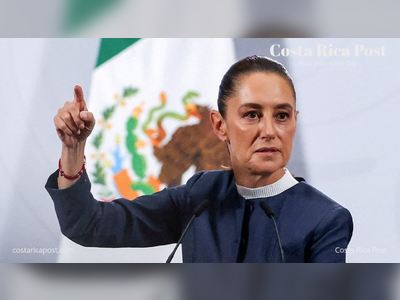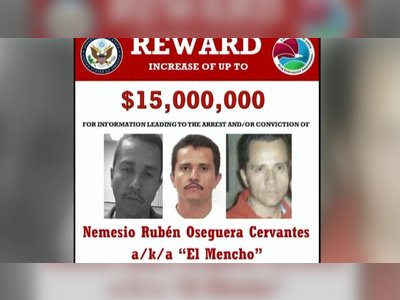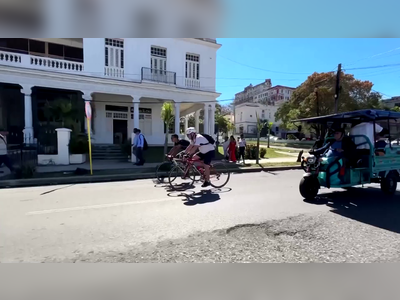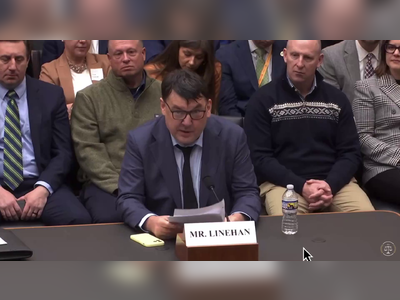Costa Rican Government's Pension Reform Dilemma: Calls for Inclusive Dialogue Abandoned
Executive opts out of Supén's talks citing lack of focus on critical pension sustainability issues.
The Costa Rican government's abrupt withdrawal from the pension reform dialogue, convened by the Superintendencia de Pensiones (Supén), has spotlighted a growing rift over how best to ensure financial security for retirees.
According to Finance Minister Nogui Acosta Jaén, the forum has strayed from addressing the crucial challenges facing the Régimen de Invalidez, Vejez y Muerte (IVM), focusing instead on a universal pension proposal that lacks the government's endorsement.
‘No hemos participado en las mesas porque desde el punto de vista práctico no se está discutiendo el tema de fortalecimiento del IVM,’ explained Minister Acosta, highlighting the government's frustration with the trajectory of the dialogue, which he argues has been misguidedly directed towards a legislative project that was not discussed with the Ministry of Finance.
He emphasized that the imperative ought to be a careful examination of factors such as retirement age, contribution percentages, and aligning pensions with workers' IVM contributions.
The universal pension plan at the center of the controversy, spearheaded by Congress member Rodrigo Arias and backed by Supén, seeks to establish a basic pension through multiple funding sources.
However, Acosta criticizes the lack of requisite consultations and elements necessary for promoting social justice in its current form.
Supén, for its part, confirmed that Ministry representatives attended initial sessions of the dialogue but ceased attendance thereafter, a development that signifies deeper institutional discord.
Despite this, the dialogue continues, with plans for future sessions aimed at reaching a conclusive social agreement by early 2025.
Supén's superintendent, Rocío Aguilar Montoya, has professed the benefits of legislative integration from the outset, seeking structural reforms that are now stymied by the absence of government participation.
The dialogue intends to address the financial imbalances of the IVM, where state debts to the Caja Costarricense de Seguro Social (CCSS), the IVM and healthcare system administrator, have reached significant levels.
As of October, unpaid state obligations have soared to ₡3.955.050 billion, underscoring the necessity for comprehensive reform discussions on financing future pension and healthcare liabilities.
Despite the setback, Aguilar Montoya, who will step down in December 2025, has reiterated her commitment to advancing the conversation with or without full governmental collaboration, underscoring the significance of legislative metamorphosis.
As the tension between governmental bodies and Supén persists, the demands for a more holistic, cooperative approach become ever more pressing—a complexity reinforcing the inherent challenges in navigating systemic pension reform, an endeavor of paramount importance for Costa Rica's socio-economic landscape.
According to Finance Minister Nogui Acosta Jaén, the forum has strayed from addressing the crucial challenges facing the Régimen de Invalidez, Vejez y Muerte (IVM), focusing instead on a universal pension proposal that lacks the government's endorsement.
‘No hemos participado en las mesas porque desde el punto de vista práctico no se está discutiendo el tema de fortalecimiento del IVM,’ explained Minister Acosta, highlighting the government's frustration with the trajectory of the dialogue, which he argues has been misguidedly directed towards a legislative project that was not discussed with the Ministry of Finance.
He emphasized that the imperative ought to be a careful examination of factors such as retirement age, contribution percentages, and aligning pensions with workers' IVM contributions.
The universal pension plan at the center of the controversy, spearheaded by Congress member Rodrigo Arias and backed by Supén, seeks to establish a basic pension through multiple funding sources.
However, Acosta criticizes the lack of requisite consultations and elements necessary for promoting social justice in its current form.
Supén, for its part, confirmed that Ministry representatives attended initial sessions of the dialogue but ceased attendance thereafter, a development that signifies deeper institutional discord.
Despite this, the dialogue continues, with plans for future sessions aimed at reaching a conclusive social agreement by early 2025.
Supén's superintendent, Rocío Aguilar Montoya, has professed the benefits of legislative integration from the outset, seeking structural reforms that are now stymied by the absence of government participation.
The dialogue intends to address the financial imbalances of the IVM, where state debts to the Caja Costarricense de Seguro Social (CCSS), the IVM and healthcare system administrator, have reached significant levels.
As of October, unpaid state obligations have soared to ₡3.955.050 billion, underscoring the necessity for comprehensive reform discussions on financing future pension and healthcare liabilities.
Despite the setback, Aguilar Montoya, who will step down in December 2025, has reiterated her commitment to advancing the conversation with or without full governmental collaboration, underscoring the significance of legislative metamorphosis.
As the tension between governmental bodies and Supén persists, the demands for a more holistic, cooperative approach become ever more pressing—a complexity reinforcing the inherent challenges in navigating systemic pension reform, an endeavor of paramount importance for Costa Rica's socio-economic landscape.











